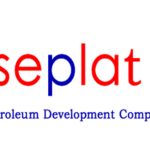The Nigerian National Petroleum Company Ltd has opted to exercise its right of first refusal as contained in the Joint Operating Agreement (JOA) of the JV + details of NNPC’s position on the planned sale of ExxonMobil shares to SEPLAT Energy Plc.
The NNPC has notified Mobil Producing Nigeria Unlimited of its intention to exercise a Right of Pre-emption on ExxonMobil’s planned sale of its entire asset in Nigeria’s onshore and shallow waters.
- 300,000 Nigerians taking refuge in Niger Republic – Refugees commission boss
- Geo-political zones intensify agitations as zoning c’ttee set to begin work
Recall ExxonMobil and SEPLAT Energy recently announced a sales agreement for SEPLAT to purchase ExxonMobil’s complete shares in MPNU, subject to regulatory approval.
NNPC’s decision effectively means the sales agreement between SEPLAT and ExxonMobil has hit the rocks.
The right of pre-emption is a legal right to parties in a joint venture to be the first to be considered for any planned sale or takeover of assets in the JVs if either party chooses to trade them off.
In a letter sighted by Daily Trust, signed by Group Managing Director, Mele Kyari and addressed to ExxonMobil, the NNPC reiterated its resolve to take over ExxonMobil’s share of the assets.
The NNPC would be required by terms of the joint venture JOA, to fully match the offer of the winning bid.
Seplat Energy, the company that made the winning bid, staked $1.583 billion for the deals to acquire the entire share capital of MPNU plus contingent consideration, noting that the asset transfer will wait for the minister’s assent.
This means that the state-owned oil firm must not, based on its exercise of the right of first refusal, pay below the $1.583 billion mark.
The NNPC also reiterated in the letter that it had transformed from being a corporation to being a profit-driven company and that it now has the capacity to buy over the share of ExxonMobil in Joint ventures.
‘Seplat, ExxonMobil deal offers huge upside for oil & gas’
In its recent insight, Wood Mackenzie, a trusted intelligence provider with unique insights on the world’s natural resources said in the energy transition era, both ExxonMobil and Seplat deal offers huge upside for oil as well as gas.
Seplat Energy Plc on February 25 announced an agreement to acquire the entire share capital of Mobil Producing Nigeria Unlimited (MPNU), a subsidiary of ExxonMobil.
According to Wood Mackenzie, because this deal is a corporate acquisition, NNPC has no rights to pre-empt a deal under the Joint Operating Agreement (JOA), which governs the JV, rather than ministerial consent would be the only hurdle remaining, “although nothing can be taken for granted”.
MPNU has a 40per cent operating interest in a Joint Venture with NNPC (60per cent). The JV includes OMLs 67, 68, 70, 104, the Qua Iboe oil export terminal. MPNU also has a 51per cent interest in the Bonny River NGL Recovery project.
Seplat has agreed to pay $1,283 million plus a contingent consideration of up to $300 million. The effective date is 1 January 2021 and completion is expected in H2 2022, pending ministerial approval.
Seplat’s debt financing of $825 million is fully committed by a syndicate of Nigerian and African banks, and energy and commodity traders.
When completed, the deal will be transformational for Seplat Energy. It is already the leading indigenous company in Nigeria, but this will triple its working interest production to over 140,000 boe/d. In total, Seplat will operate 15percent of Nigerian oil production.
Wood Mackenzie further notes that crucially, the deal diversifies its operations into shallow water, which is largely devoid of the thefts afflicting its onshore operations.
Although this is Seplat’s first offshore acquisition, it will acquire all of MPNU’s Nigerian staff, thus allaying any concerns about its operational capabilities.
“Seplat has built a business turning around the Majors’ unwanted assets, a process it started in 2010. With the acquisition, its portfolio becomes very oil-dominated. ExxonMobil refused to be drawn into the high risk domestic gas market and had no exposure to NLNG. As a result, the acreage has the highest concentration of gas flaring in the country. Seplat, a listed company, will need to tackle this immediately,” Wood Mackenzie added.
They noted that in the long term, it would look to develop access into the domestic market in line with government policy, while there is also scope for LNG too. An FLNG project at Yoho on OML 104 was already under discussion before the deal. That could now accelerate, while long-term supply to NLNG is another option.

 Join Daily Trust WhatsApp Community For Quick Access To News and Happenings Around You.
Join Daily Trust WhatsApp Community For Quick Access To News and Happenings Around You.


